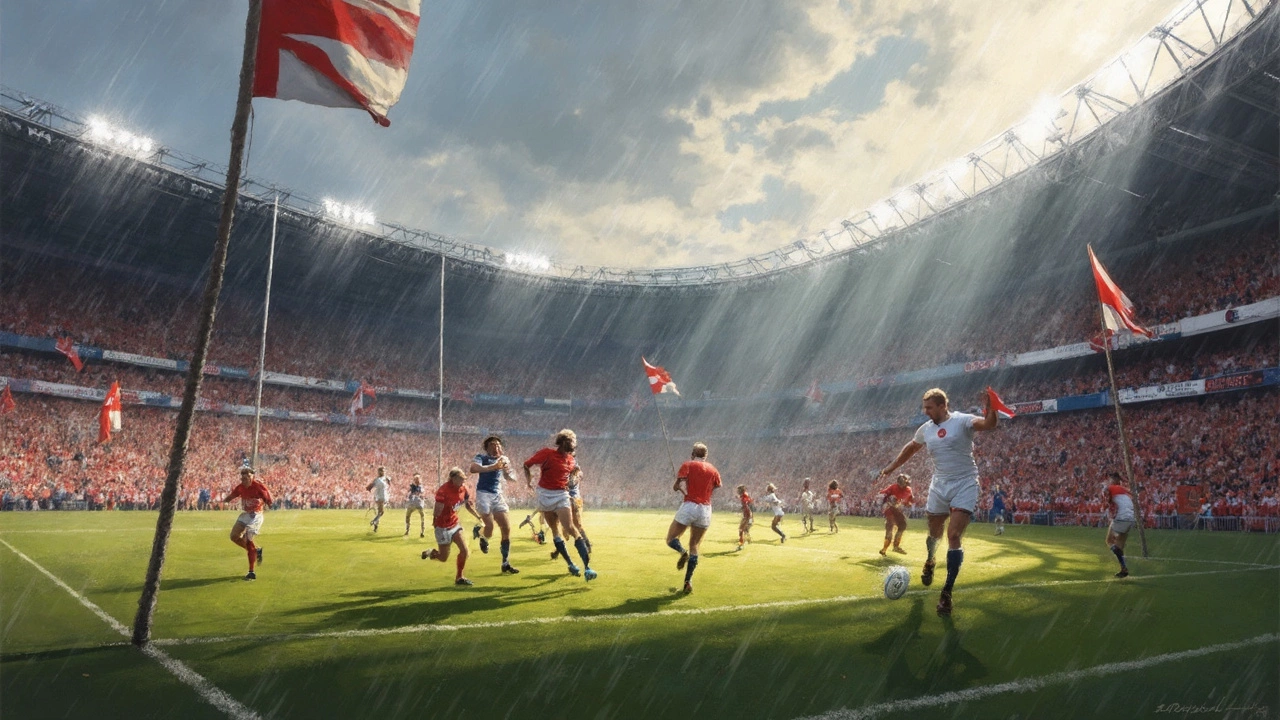Sports Fixtures: Your Go‑To Guide for Schedules, Matchups and Events
When checking fixtures, the official timetables that list when and where sports contests happen. Also known as match schedules, fixtures are the backbone of any competition, letting teams, fans and broadcasters sync up. Below we’ll break down why fixtures matter, how they link to schedules, the calendar view that orders games chronologically and matches, the individual contests between two sides across a season.
First off, a schedule, a structured list of dates and times for upcoming games is more than a simple spreadsheet. It shapes travel plans for athletes, ticket sales for fans and advertising slots for media partners. When a schedule is released, clubs immediately start aligning training cycles, while broadcasters lock in prime‑time slots. That chain reaction shows the semantic link: fixtures encompass schedules, and schedules drive team logistics. In practical terms, if you know the fixture list for the Premier League, you can plan weekend trips, work‑day viewing or even predict when a star player might be rested.
Next, consider the match, the actual contest where teams compete for points or titles. Every fixture points to a match, and each match outcome feeds back into future fixtures – think of rescheduling due to weather or tournament progression. This creates a clear predicate: fixtures require matches to exist. For fans, the match detail tells you who’s playing, where, and what stakes are on the line. For teams, the match data drives game‑day tactics, ticket pricing, and even fan engagement campaigns.
Why Knowing Fixtures Boosts Your Sports Experience
Understanding fixtures gives you a strategic edge. If you track the tournament, a series of linked matches culminating in a champion structure, you can anticipate knockout rounds, potential upsets, and travel opportunities. For instance, the tennis match schedule posted for July 19, 2025 lets you spot headline matchups before they hit the TV guide. That connection—tournaments rely on fixtures for progression—means a solid grasp of the fixture list can turn a casual observer into a savvy planner.
Another layer is the venue. Every fixture lists a stadium or court, tying the event to a geographic location. Knowing where fixtures take place helps fans decide which games are worth the journey and allows local businesses to prepare for crowds. The relationship is simple: fixtures specify venues, and venues influence attendance. Whether you’re heading to a rugby clash in a packed arena or a quiet golf tournament at St Andrews, the fixture tells you where the action lives.
From a media standpoint, fixtures drive broadcast schedules. Networks plan live slots around high‑profile fixtures, and advertisers buy time based on expected viewership spikes. This creates a three‑way loop: fixtures shape broadcasts, broadcasts attract viewers, and viewer data feeds back into future fixture planning. When you see a headline like “Today’s Top Tennis Matches: Live Schedule, Start Times & Key Players”, you’re looking at a direct application of fixture data for real‑time consumption.
For athletes, fixtures dictate training peaks. A squad might periodise its conditioning to hit peak performance for a crucial fixture, then taper afterward. The link—fixtures influence training cycles—shows why coaches obsess over the calendar. Even in fitness‑focused posts like “30‑Day Slimming Plan” or “Big 3 Gym Workouts”, the underlying principle is timing, much like planning around a match fixture.
All these connections—fixtures to schedules, matches, tournaments, venues, broadcasts, and training—form a web that makes sport dynamic and predictable at the same time. Below you’ll find a hand‑picked selection of articles that dive deeper into these aspects, from how to choose the right running shoes for a marathon fixture to the impact of rugby’s popularity on global event planning. Use this collection to sharpen your understanding, plan your next game‑day outing, or simply stay ahead of the sports news cycle.

22
Mar
Rugby, a sport known for its physical intensity and deep-rooted traditions, has continually captured the hearts of many around the globe. Despite changes in modern sporting interests, rugby maintains its unique appeal through engaging fixtures and a robust sense of community. The sport offers not just physical competition, but also shared moments that bond players and fans alike. This article delves into rugby's enduring presence, examining whether it stands the test of time as a beloved sport.
Read More

11
Feb
Rugby enthusiasts often wonder if Netflix is the right place to find their favorite matches. While Netflix isn't traditionally known for sports broadcasting, it offers a selection of rugby documentaries and series for fans. For live matches and fixtures, there are other platforms more aligned with sports streaming. Discover where to watch your favorite games and what Netflix offers to rugby fans.
Read More

